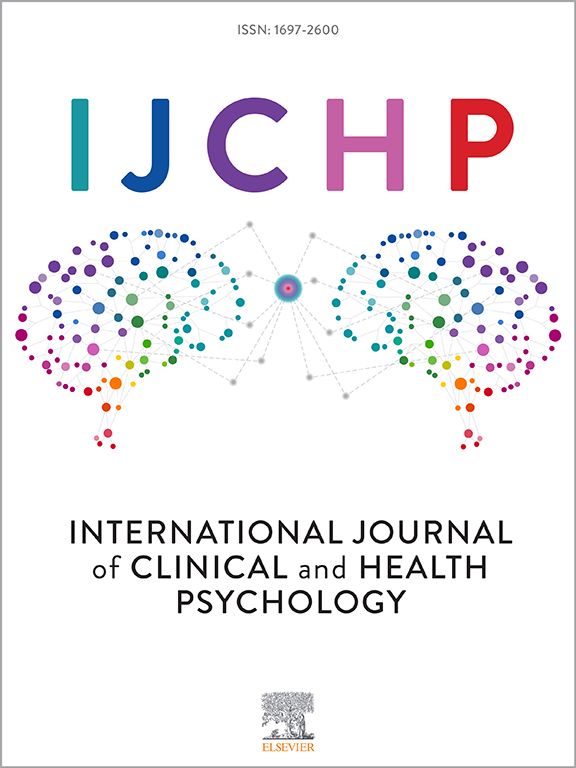发作性睡病与精神疾病的共病:文献综述
IF 4.4
1区 心理学
Q1 PSYCHOLOGY, CLINICAL
International Journal of Clinical and Health Psychology
Pub Date : 2025-04-01
DOI:10.1016/j.ijchp.2025.100591
引用次数: 0
摘要
嗜睡症是一种慢性睡眠-觉醒障碍,以反复发作的日间过度嗜睡、睡眠幻觉和睡眠瘫痪为特征。发作性睡病有两种亚型:1型发作性睡病(伴有发作)和2型发作性睡病(无发作性发作)。本文旨在探讨发作性睡病患者的精神疾病合并症。方法通过于2024年7月20日进行的系统文献综述来检验这种关联。在PubMed和Embase中进行了搜索。结果总体而言,发作性睡病患者共病性精神障碍的患病率差异较大。抑郁症、焦虑症和多动症在发作性睡病患者中比在普通人群中更为普遍。在发作性睡症患者中,共病性精神障碍的患病率和饮食失调的正式诊断似乎也更高,尽管程度较轻。神经退行性疾病和成瘾问题并不比一般人群更普遍。需要更多关于双相情感障碍、强迫症、自闭症、智力残疾和人格障碍的证据。结论总体精神障碍在发作性睡病患者中更为普遍,但不同疾病的患病率差异较大。据报道,发作性睡病患者普遍存在抑郁症、焦虑症和注意力缺陷多动障碍。对于其他精神疾病,目前的证据不那么确凿。重要的是,临床医生和患者意识到发作性睡病和精神疾病的共病性。本文章由计算机程序翻译,如有差异,请以英文原文为准。
Narcolepsy and psychiatric comorbidity: a review of the literature
Introduction
Narcolepsy is a chronic sleep-wake disorder characterized by recurrent episodes of excessive daytime sleepiness, hypnagogic hallucinations, and sleep paralysis. There are two subtypes: narcolepsy type 1 (with cataplexy) and narcolepsy type 2 (without cataplexy). This review aims to investigate the comorbidity of psychiatric disorders in narcolepsy.
Methods
We examined this association through a systematic literature review conducted on July 20, 2024. Searches were performed in PubMed and Embase.
Results
In general, the prevalence of comorbid psychiatric disorders in patients with narcolepsy varies considerably. Depression, anxiety disorders and ADHD are considerably more prevalent in patients with narcolepsy than in the general population. The prevalence of comorbid psychotic disorders and a formal diagnosis of an eating disorder seems also higher in narcolepsy, albeit to a lesser extent. Neurodegenerative disorders and addictive problems were not more prevalent than in general population. More evidence is needed on bipolar disorder, obsessive compulsive disorder, autism, intellectual disability and personality disorders.
Conclusion
Overall psychiatric disorders are more prevalent in patients with narcolepsy, but prevalence rates vary widely across disorders. High prevalence of comorbid depression, anxiety disorders and ADHD is reported in narcolepsy. For other psychiatric disorders, current evidence is less conclusive. It is important that clinicians and patients are aware of the comorbidity of narcolepsy and psychiatric disorders.
求助全文
通过发布文献求助,成功后即可免费获取论文全文。
去求助
来源期刊

International Journal of Clinical and Health Psychology
PSYCHOLOGY, CLINICAL-
CiteScore
10.70
自引率
5.70%
发文量
38
审稿时长
33 days
期刊介绍:
The International Journal of Clinical and Health Psychology is dedicated to publishing manuscripts with a strong emphasis on both basic and applied research, encompassing experimental, clinical, and theoretical contributions that advance the fields of Clinical and Health Psychology. With a focus on four core domains—clinical psychology and psychotherapy, psychopathology, health psychology, and clinical neurosciences—the IJCHP seeks to provide a comprehensive platform for scholarly discourse and innovation. The journal accepts Original Articles (empirical studies) and Review Articles. Manuscripts submitted to IJCHP should be original and not previously published or under consideration elsewhere. All signing authors must unanimously agree on the submitted version of the manuscript. By submitting their work, authors agree to transfer their copyrights to the Journal for the duration of the editorial process.
 求助内容:
求助内容: 应助结果提醒方式:
应助结果提醒方式:


